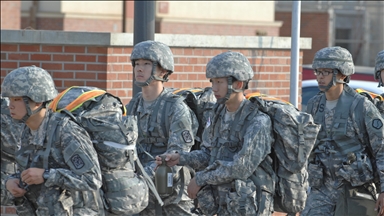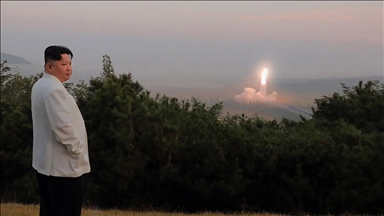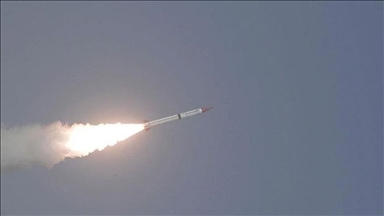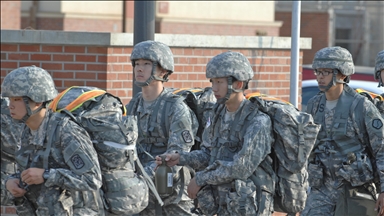Is North Korea marching towards war or peace?
Kim-Trump summit in May might lead to disaster or complete denuclearization in long term
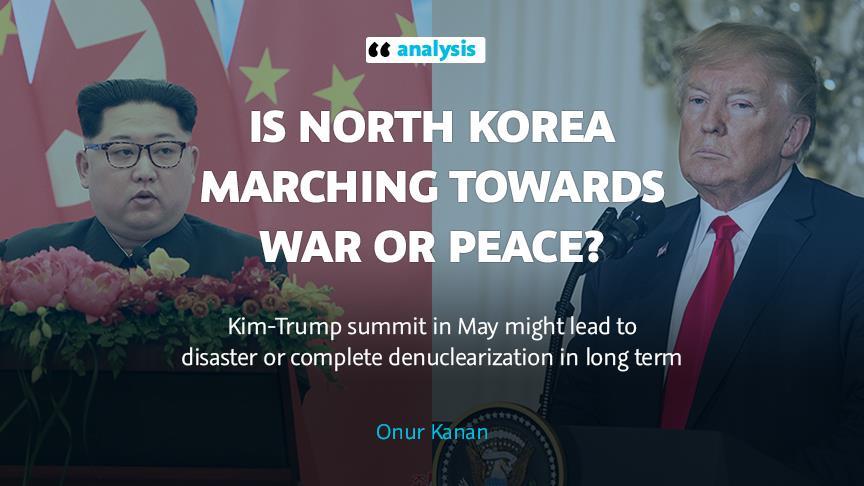
By Onur Kanan
ISTANBUL
“Take but degree away - untune that string / And, hark, what discord follows!” says Ulysses in Shakespeare’s famous Troilus and Cressida. And this is the strategy that North Korean leader Kim Jong Un is following today. He has “untuned the strings” and broke the molds by presenting an unexpected invitation to meet with U.S. President Donald Trump a few weeks ago. And the discord started to follow right after.
Once Trump shocked the world by accepting his invitation, other leaders got in line to meet with him. Accordingly, Kim is scheduled to meet with South Korean President Moon Jae-in in April and with Trump in May. Feeling left out in regard to the developments in the region, Japanese leader Shinzo Abe, one of the hardliners when it comes to negotiating with North Korea, offered to have a summit with Kim too, which might happen in June, according to Japanese sources.
As the leaders in the region were busy scheduling their meetings with Kim, the world woke up to a new picture where China’s President Xi Jinping was shaking hands with Kim Jong Un. Later, it turned out that Kim had made a secret two-day visit to Beijing upon Xi’s invitation. Even though not many details were shared with the public regarding this meeting, the message was clear: China will not be a side player as other actors are about to stir up the waters in the region.
Kim left North Korea for the first time in his six-year reign to meet the Chinese leader just ahead of two other important summits. And this was the first meeting between Kim and any foreign head of state. The meeting had two significant repercussions: Kim showed the world that he has his government under control and is comfortable leaving his country despite the speculations that he had long refused to leave Pyongyang for fear of a coup. And more importantly, Xi showed the world his central role in regional diplomacy, and primarily to Trump, Moon, and Abe. While other leaders are busy pondering what they can bring to the negotiation table and what Kim could offer, Xi has already gained an understanding of the kind of thinking Kim has. Also with this meeting, China has reminded the world of Mao Zedong’s words that China and North Korea are “as close as lips and teeth”. “If the lips are gone,” says a Chinese proverb, “the teeth will be cold.” Now the world knows that China will not let its teeth get cold easily.
When it comes to the Kim-Trump summit, if it ever happens, one of the most significant questions to be asked is: why now? Why did Kim offer an invitation to Trump today? With each nuclear test, it has become known that North Korea has advanced its nuclear program and it is speculated that it is about to develop the technology to hit the west coast of the U.S. If the speculation is true, he is now confident enough to discuss a deal with a sitting U.S. president, which will be the first in history. And he will be able to prove to his people that he is recognized by world leaders as a legitimate head of North Korea. In that case, would it be realistic for the U.S. to come to this summit, expecting Kim to give up on its nuclear program altogether without asking for anything in return?
Kim told Xi that he was “committed to denuclearization,” according to Xinhua: “It is our consistent stand to be committed to denuclearization on the peninsula, in accordance with the will of the late President Kim Il Sung and te late General Secretary Kim Jong Il.”
His words should be given closer attention as he does not say ‘denuclearization in North Korea’. But rather he says “denuclearization on the peninsula”. What he means by that is he might freeze and even give up his nuclear program eventually as Washington demands, but in exchange, he might be expecting the U.S. to withdraw its nuclear shield, and maybe its troops from the Korean Peninsula. In other words, with this statement, Kim is showing that denuclearization is actually on the table -- which makes it difficult for the U.S. to step back -- but is at the same time warning that it will come at a price. This sort of demand will perfectly suit Chinese needs as well.
What further complicates this equation is John Bolton, Trump’s new national-security adviser, who will play a key role in advising Trump on North Korea. He is notorious for his hawkish policies towards North Korea and Iran. He supports the idea that military strikes should be resorted to against North Korea.
"It is perfectly legitimate for the United States to respond to the current 'necessity' posed by North Korea's nuclear weapons by striking first," Bolton wrote in an opinion piece on February 28. He does not believe that the summit between Trump and Kim can be called successful unless both sides agree on a complete and immediate denuclearization of North Korea and a regime change in the country. It goes without saying that this is far beyond the current range of options.
As an adviser to Trump on the North Korea summit, Bolton does not believe Kim’s promises, and claims that he is merely trying to buy time with this summit to be able to reach the finish line in the advancement of his nuclear program and hit the U.S. “Question: How do you know that the North Korean regime is lying? Answer: Their lips are moving,” said Bolton on Fox News. Bolton believes that Trump should not leave that negotiation table with anything less than a complete and instant denuclearization agreement.
On the other side of the coin, North Korea does not trust Bolton either, who the North Korean state media had called “a human scum and a bloodsucker” in 2003. Then, North Korea announced that Pyongyang would not continue talks with Bolton, and after that, Bolton did not attend the following meetings.
With all these in mind, it is obvious that a man who played a key role in the decision-making of the George W. Bush administration for the invasion of Iraq, and 15 years on, still claims that what the U.S. did to the Saddam regime was right, will attempt to influence the decision-making of the Trump administration regarding North Korea. And he will definitely not be aiming at finding a peaceful middle ground between the U.S. and North Korea.
The Kim-Moon summit in April will provide an insight about Pyongyang’s thinking and a clearer idea on what may transpire at the Kim-Trump summit in May. If, at the April summit, we find a Kim willing to discuss giving up his nuclear arsenal in exchange of reasonable demands, then his meeting with Trump might be expected to pave the way for a complete denuclearization in the long term. However, if the Trump administration, with Bolton on board, expects Kim to give up his nuclear program right then and there, then this summit might only lead to a disaster. So the world is all ears to harken to the discord which might soon follow.
[The writer is Deputy Researcher at TRT World Research Centre]
* Opinions expressed in this article are the author’s own and do not necessarily reflect the editorial policy of Anadolu Agency.
Anadolu Agency website contains only a portion of the news stories offered to subscribers in the AA News Broadcasting System (HAS), and in summarized form. Please contact us for subscription options.


